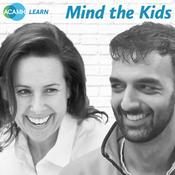hThis powerful episode dives into how a mother’s own childhood trauma can quietly shape the emotional lives of her children – and how that cycle can be broken. Drawing on a rare 12‑year study of around 300 mostly Black, highly disadvantaged families in the US Midwest, Dr Meeyoung Min unpacks how her team followed mothers and babies from birth through early adolescence to understand what really drives later mental health.
Far from blaming mothers, the episode situates these risks in a wider context of poverty, limited opportunity, and unresolved trauma, and leans into hope rather than inevitability. Dr Min makes a compelling case for pregnancy and the early postnatal period as a “golden window” for support – from practical help and non‑judgemental social networks to community and faith groups that wrap around both parent and child – showing that with the right support, intergenerational patterns of harm can be disrupted and futures can be changed.
The conversation reveals two major pathways: first, mothers who experienced more childhood maltreatment tend to struggle more with their own mental health, making it harder to stay emotionally available, regulate feelings, and use calm, consistent parenting – all of which is linked to greater anxiety, low mood, and acting‑out behaviours in their 12‑year‑olds. Second, prenatal exposure to substances such as cocaine, alcohol, tobacco, and marijuana appears to alter developing brain systems involved in stress, independently increasing the risk of externalising behaviour.
You can read the main JCPP paper discussed in this episode, “Intergenerational transmission of maternal childhood maltreatment, prenatal substance exposure, and internalizing and externalizing symptoms in early adolescence at age 12” via https://doi.org/10.1111/jcpp.70030
Get a free CPD/CME certificate for listening to this podcast by registering for a FREE ACAMH Learn account at https://www.acamhlearn.org
Visit https://www.acamh.org
Facebook and LinkedIn search / ACAMH
Instagram https://www.instagram.com/assoc.camh
Bluesky https://bsky.app/profile/acamh.bsky.social
X https://x.com/acamh



